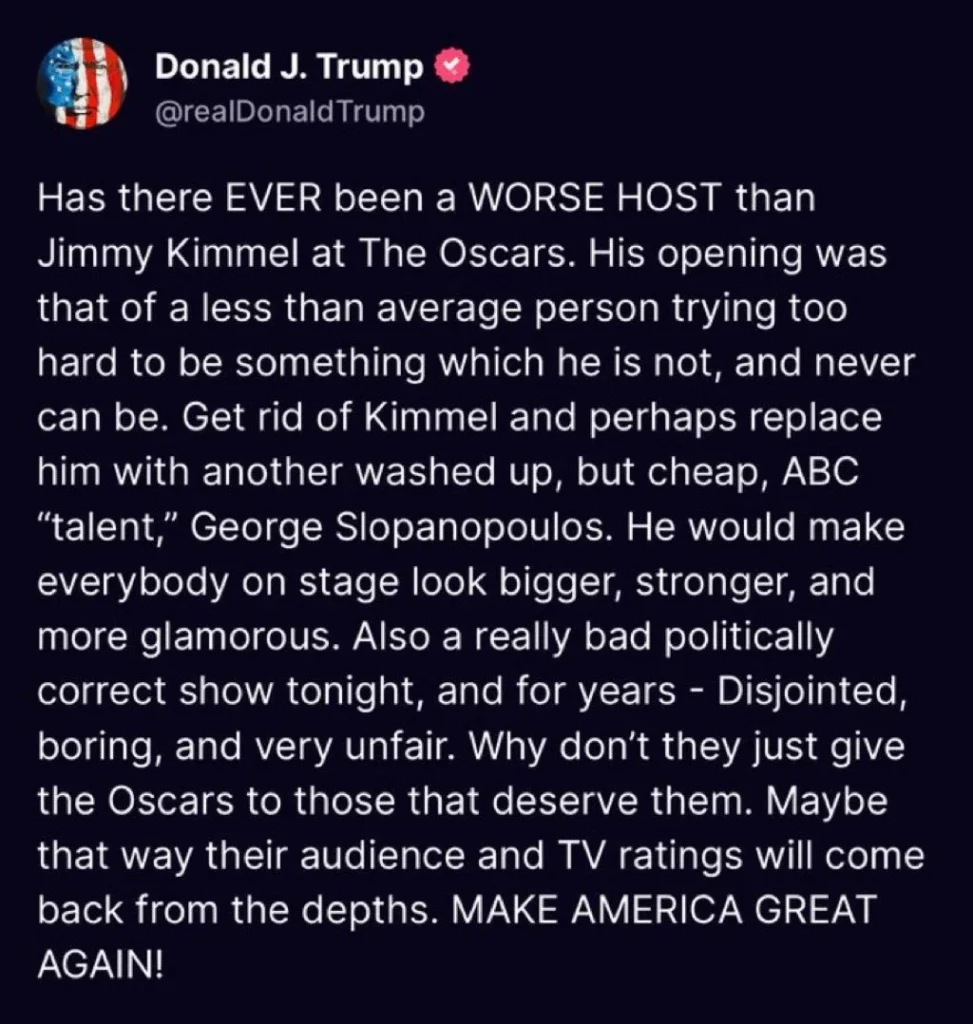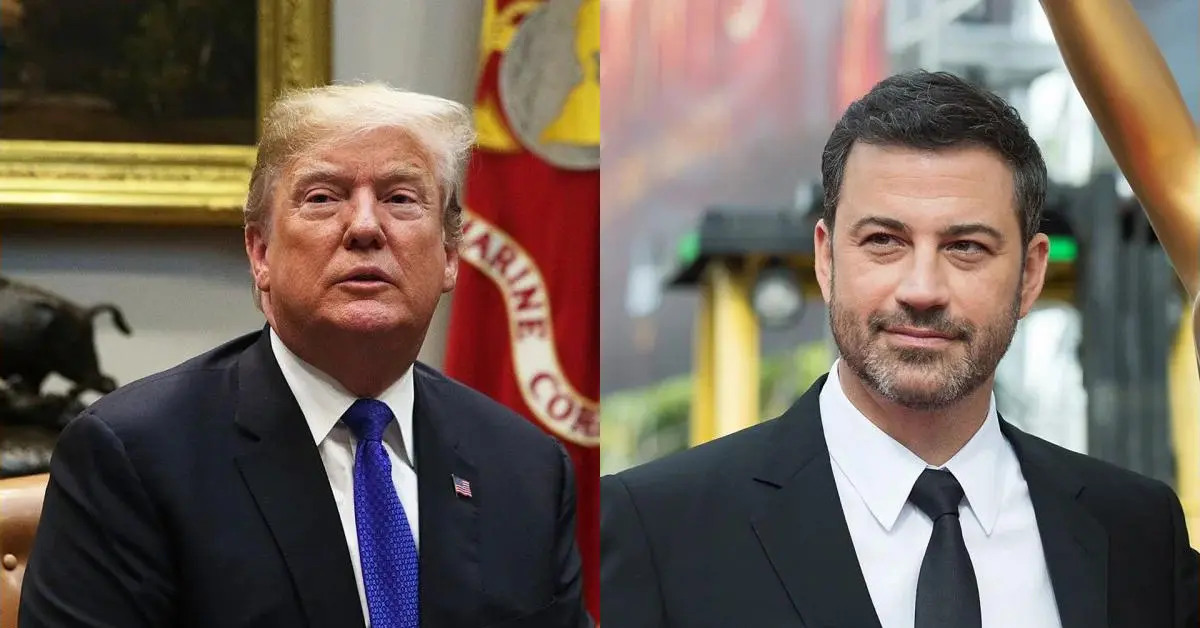During the Oscars broadcast, Jimmy Kimmel took a moment to address a recent social media post by Donald Trump, who criticized Kimmel’s hosting skills. Trump claimed Kimmel’s opening was unimpressive, suggesting a replacement with another ABC personality, possibly George Stephanopoulos. Kimmel responded on stage, sarcastically thanking Trump and making a joke about his legal issues.
Jimmy Kimmel calls out Donald Trump at the 2024 #Oscars pic.twitter.com/bAGWxUFg9P
— The Hollywood Reporter (@THR) March 11, 2024
Apart from Kimmel’s retort, the 2024 Oscars had minimal involvement with Trump, although political undertones persisted. Some attendees, such as Mark Ruffalo and Billie Eilish, wore red pins advocating for a ceasefire in Gaza. Protests related to the conflict disrupted traffic around the Kodak Theater, causing a slight delay in the ceremony.
During the acceptance speech for the best international feature, director Jonathan Glazer addressed the violence in the Middle East, connecting it to the theme of his Holocaust drama. He emphasized the impact of dehumanization and condemned the occupation affecting innocent people in Israel and Gaza.
This marked Jimmy Kimmel’s fourth time hosting the Oscars.

Also read: Is Vanessa Hudgens Pregnant? Who is Vanessa Hudgens Baby Daddy?
Despite Trump’s social media spat with Kimmel, the Oscars largely steered clear of direct political controversies. The focus shifted towards broader issues, with attendees using the platform to highlight global concerns. Jonathan Glazer’s acceptance speech underscored the symbolic parallels between his film, “The Zone of Interest,” and the ongoing conflicts in the Middle East, emphasizing the need to resist dehumanization.
The presence of red dot lapel pins in support of a Gaza ceasefire also reflected the entertainment industry’s continued engagement with political and humanitarian causes. The Oscar ceremony became a backdrop for artists to express their solidarity and draw attention to pressing issues, using the glitzy event as a platform for advocacy.
The protests outside the Kodak Theater, though disruptive, served as a visible reminder of the socio-political climate. As Hollywood figures graced the red carpet, the red lapel pins and the discussions around Glazer’s speech added a layer of substance to the glamorous proceedings.
While Trump’s critique injected a moment of political tension, the overall tone of the evening remained focused on celebrating cinematic achievements and, to some extent, amplifying voices for change. The Oscars once again proved to be a stage where the entertainment industry intersects with broader societal concerns.
Content Contributor: Amrita Mridul
***Featured image courtesy Mashable









